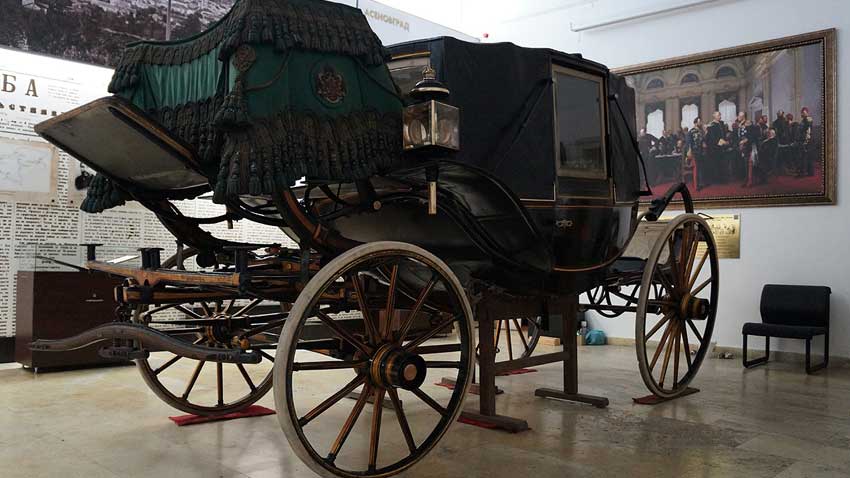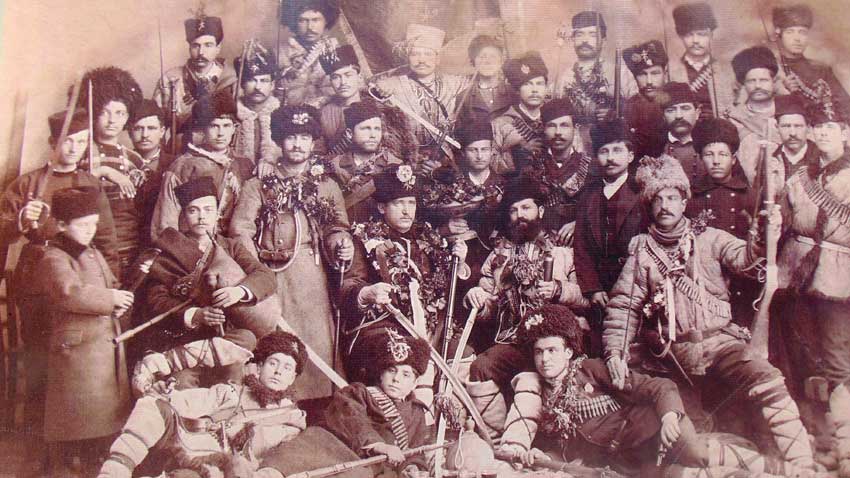 6
6
On September 6, 130 years ago the Bulgarian people realized one of the most remarkable deeds in their modern history - the Unification of Northern and Southern Bulgaria. It became possible seven years after the country's Liberation from five centuries of Ottoman rule during the Russo-Turkish War of 1877-78, which ended with the victory of Russia. Under the San Stefano peace treaty the newly-declared Bulgarian state included the lands inhabited predominantly by Bulgarian population. The Berlin Congress of the Great Powers, however, fragmented them. The territory between the Danube and the Stara Planina Mountain together with the Sofia district was included into the new Principality of Bulgaria. Lands south of the Balkan mountain, although with administrative autonomy, remained under the political power of the Sultan under the name of Eastern Rumelia with its capital Plovdiv. Macedonia and Eastern Thrace were returned to the Ottoman Empire.
More in an interview for Radio Bulgaria with Stefan Shivachev, director of the Regional History Museum in Plovdiv:
"The 19th century was the century of the dictate of the Great Powers. The international congresses in Paris, Vienna, and then in Berlin in 1878, prefigured the future of Europe and the world for decades. For the first time in 1885 a small nation - the Bulgarian one, dares to oppose the dictate of the Great Powers. While all recognize that the Treaty of Berlin was extremely unfair to Bulgaria, no one thought that its clauses could be overcome, and that this could happen at the will of the Bulgarian people. Even Russia as a great power did not allow itself to speak openly of Unification and of a revision of the decisions of the Berlin Congress. But it happened on September 6, 1985, after a long preparation by the old Bulgarian revolutionaries who created committees throughout the territory of Eastern Rumelia. Bulgarian Knyaz Alexander Battenberg was aware of it, as the military prepared their plans for the moment when it would be announced."

However, the Unification had to be protected because Serbia attacked our country. And Bulgarian troops - of the Principality and of Eastern Rumelia - were deployed at the border with Bulgaria's western neighbour within a period that was uniquely short for that time. The Unification was successful because, as great Bulgarian poet and writer Ivan Vazov said, it had already been performed within the minds and hearts of all Bulgarians.
"The Unification is probably the first event in the history of Bulgaria, unfortunately not repeated afterwards, in which all Bulgarians united around a national idea and acted on it”, Stefan Shivachev points out. “When on September 6th the revolutionaries using the help of the Bulgarian army and the Rumelian militia declared the Unification, they placed its defense and its future fate into the hands of the prince, of the Bulgarian political class, of the leaders of Bulgaria: Stefan Stambolov - Chairman of the National Assembly, Petko Karavelov - prime minister, foreign minister Iliya Tsanov, Bulgarian diplomats. And in the coming months all the most famous Bulgarians participated in delegations to the Russian Tsar and to the governments of all the great powers in Europe to promote the Bulgarian cause."
The Bulgarian army, which had little experience and was commanded by captains, succeeded in defeating the Serbian army built in the course of 50 years and led by generals.
"After the Unification was declared and during the next two months, at the battles of the Serbian-Bulgarian War, the Unification was the main event for Europe”, emphasizes Stefan Shivachev. “It was on the front pages of the European press, of all telegraph agencies. This was the first case in which Bulgarians stepped out on the European stage as a nation that has the abilities of statehood and creativity, not just as a nation that was massacred during the April Uprising of 1876 or sacrificed its heroes in the battles of the Russo-Turkish War."

Now the Regional History Museum in Plovdiv is guest at the National Assembly with an exhibition dedicated to the 130th anniversary of the Unification. The exhibition contains testimonies of contemporaries, witnesses of the events of that time. In the exhibition one can see a copy of a large-scale work, recreating the Berlin Congress. Its author is the great German painter Anton von Werner who attended the meetings of the Congress and in the course of a year laboured on the canvas, capturing the spirit of the time and the protagonists. Today this painting is on display at the Town Hall in Berlin.
The welcoming of Prince Alexander Battenberg in Plovdiv on September 9 is depicted in the work of the Italian Pietro Montani - chief architect of Eastern Rumelia and a skilled artist. It recreates the atmosphere of the time, by painting an imaginary arch which he transported through his imagination from Paris onto Dzhumayata Square in Plovdiv. Austrian artist Franz Jaschke depicted the arrival of the prince, the announcement of the Unification, although he was drawing in Vienna, without coming to Plovdiv. But his works are very authentic because they are based on what he saw and read on the pages of the press. And these colourful drawings spread in Bulgaria and throughout Europe. The exhibition also showcases photos, some of them for the first time - for example of Bulgarian volunteers from Macedonia. They are about 400 people who come to Plovdiv to defend the Unification and take part in the Serbo-Bulgarian War.

"We want to show the faces of the people who actually made the Unification a fact, which prepared it, declared it and defended it. These are the revolutionaries as well as the politicians, ministers and diplomats. But also the ordinary Bulgarians in their traditional peasant shoes and clothes, with the sandals, old rifles from the 19th century who also go as volunteers to defend the cause."
The result of a scientific conference dedicated to the Unification is a collection of publications of famous Bulgarian historians - from BAS, universities, museums and archives. However, to this day new facts about it and the people who created it continue to come to light.
English Rossitsa Petcova
After nearly 35 years, the Bulgarian Orthodox Church Community in London has its own church in the central part of the British capital, in close proximity to the Bulgarian Embassy. There, in the prestigious Kensington district, next to Hyde Park and..
Meatfare Sunday in 2025 will be remembered as a major celebration for the Bulgarian Orthodox Church and the entire Bulgarian community in the United Kingdom. The "St. John of Rila" Orthodox Church, built with funds from the Bulgarian state and with..
All Souls' Day (Zadushnitsa in Bulgarian) is an important day for many Christians. On this day, we remember deceased relatives and loved ones. The first of the three All Souls' Days of the year, also known as the Great or All Souls' Day, falls on the..
Meatfare Sunday in 2025 will be remembered as a major celebration for the Bulgarian Orthodox Church and the entire Bulgarian community in the United..
After nearly 35 years, the Bulgarian Orthodox Church Community in London has its own church in the central part of the British capital, in close proximity..

+359 2 9336 661
